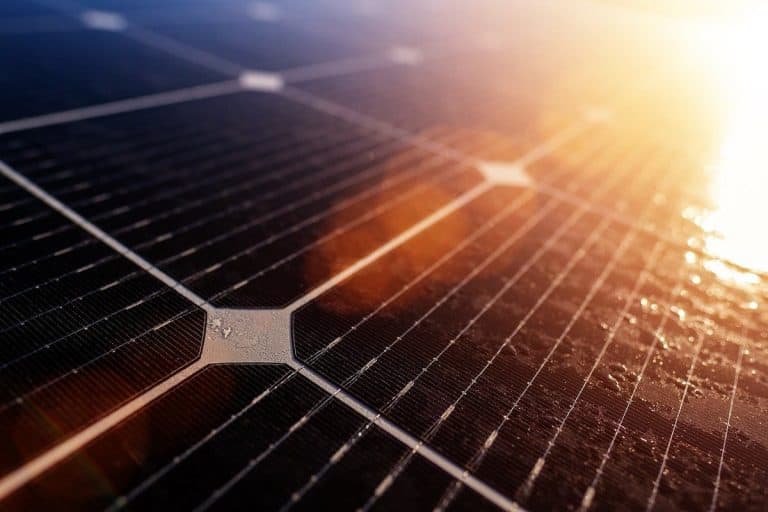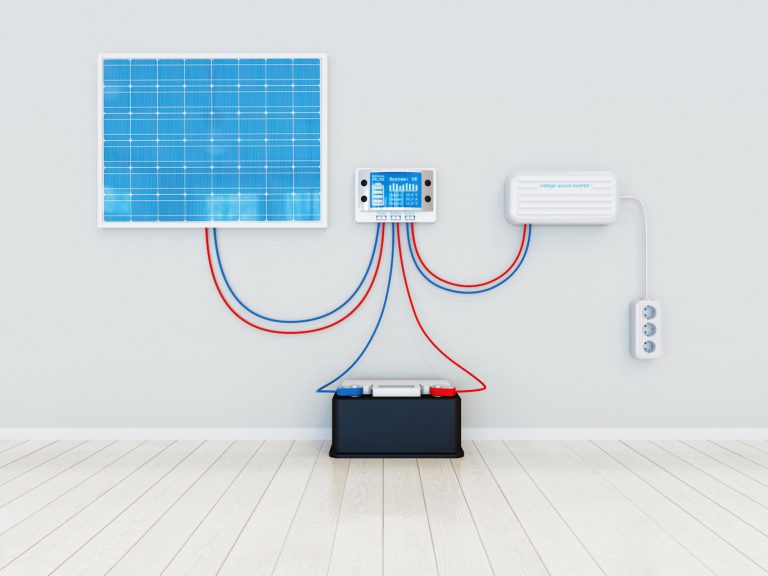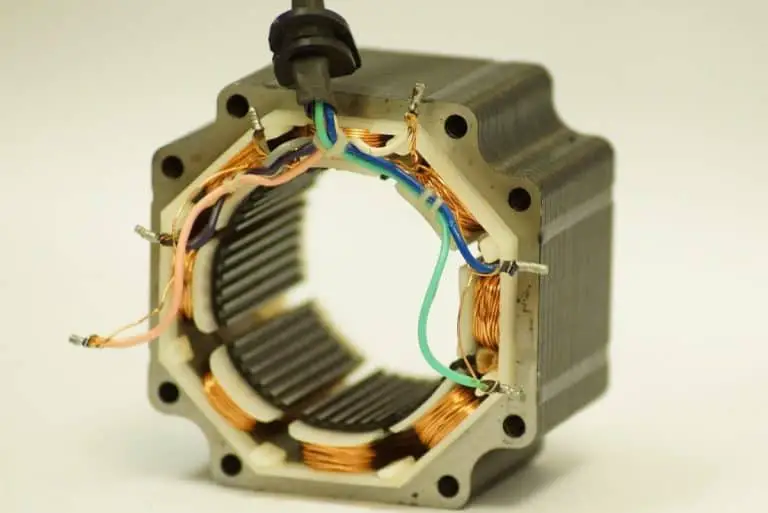What Are Solar Kits? The Solar Kit Explained
Are you curious to know what solar kits are? Solar energy has many advantages when used properly, but to benefit from it, it is necessary to have the right components and wire them correctly.
A solar kit comprises many components, such as solar panels, inverters, wires, battery banks, charge controllers, mounting hardware, cables, and other things that, when assembled, can harness the sun and generate electricity.
This article covers all there is to know about solar kits and how to most benefit from them.
What Is A Solar Kit?
A kit is a set of equipment that has a specific purpose. For example, solar kits mean getting all the necessary components required to generate electricity from the sun and power appliances and other things in the house. So if you get a kit, you have every compatible part.
A disadvantage of separately buying each component is the necessity to have a little knowledge of how to get compatible elements and make them work together. With a kit, you do not have to think about anything; everything is already done for you.
A solar kit is a complete package organized to make it easy to put together, so the user doesn’t have to guess.
What Are The Components Of A Solar Kit?
Solar kits can be different; for example, some might include a battery bank, while some provide electricity directly. Here are all the components you find in various solar kits:
- Solar panels
- Inverter
- Electrical panels
- Charge controller
- Mounting hardware/racking
- Cables
- Wiring
- Switches (solar
- Batteries
- Solar power meter (optional)
Solar Panels
Solar panels are an essential part of a solar kit. They are responsible for harnessing the sun and producing electricity. Therefore, it is necessary to estimate solar energy consumption to determine the size and the number of panels you need.
Solar panels are also known as photovoltaic panels because they consist of photovoltaic cells. The higher the number of cells, the more electricity can be produced. It is possible to mount solar panels on the house roof or RV roof, get portable panels, or in some cases, be mounted on the ground.
Types Of Solar Panels
- Polycrystalline
- Monocrystalline
- Thin-film solar cells (made with silicon)
Polycrystalline cells have multiple silicon crystals put together. In general, they are cheaper but also less efficient. On the other hand, monocrystalline cells are more efficient and are composed of a single crystal cell, but they are a more expensive solution.
Thin-film panels are not so standard since they consist of amorphous silicon. Those types of panels are flexible and suitable when the panels have to be placed on curved surfaces. However, despite the flexibility, they are not the most efficient.
Solar panels last for many years and sometimes up to 25 years, which means that even if expensive, they can still be worth the investment.
Inverter
Inverters are necessary if you use solar energy to power AC (alternating current) appliances. Still, if you use solar panels to power appliances or devices that run on DC (direct current), you might not need an inverter.
But, in general, it is safe to say that most appliances run on AC, so an inverter is probably required anyway. The inverter is necessary to convert the electricity produced by solar panels, DC, into AC.
The inverter is also required to utilize the energy stored in the battery bank to power various appliances since the electricity from a battery is still DC. An inverter is essential if you use a solar kit to get off the grid completely.
An inverter can last up to 10 years, sometimes more, depending on the quality of the product.
Solar Batteries
Solar batteries are essential in solar kits meant to get you off the grid if you want a backup for emergencies or electricity at night. Solar energy depends on the sun; in winter, bad weather or cloudy days can reduce the solar panel’s energy output.
You can use batteries to draw energy when that happens. The extra solar energy is stored in battery banks during the day and used when necessary. For example, you might not need a battery system if you decide to have a grid-tied solar system.
The grid can provide electricity when you are not getting solar energy through your solar kit, which can be at night, or when there is no sun. Getting a solar battery kit is more expensive, but it can make a household independent.
Several Types Of Solar Batteries
- Lithium -ion
- Lead-acid
- Nickel-cadmium
- Flow
Recently, the most popular batteries have been lithium-ion because they are more efficient, hold more energy, and require less maintenance than typical lead-acid batteries.
However, each type of battery has strong and weak points, plus the price can be an essential factor to consider before making a final decision.
Charger Controller
A charge controller is necessary to control the flow of electricity from the solar panels to the battery. Without a charger controller, there is no electricity regulation, and the battery can get damaged if the flow is too high.
The charge controller is necessary for a battery system in the solar kit. It is an essential device to prolong the battery life and performance and prevent safety risks (fire hazards, etc.).
Mounting Hardware
The solar kit must include racks and mounts to install your solar system. Those components make it possible to attach the solar panels to the roof or ground at the correct angle. In addition, proper mounting hardware makes the system more efficient.
Types Of Mounting Hardware
- Roof mounting hardware
- Ground mounting hardware
- Pole mounting hardware
Roof mounting racks are very common and are used to mount solar panels to a roof, on the top of an RV, vans, boats, etc. Ground mounts are generally attached to concrete and allow solar panels to be installed at an angle (which can be changed manually when necessary).
Pole mounting is not so common, allowing the solar panel to be mounted on top of a pole. The purpose of this system is to place solar panels higher than usual.
Solar Meter
You can include a solar meter in a solar kit if you want a device to measure how much electricity your solar system setup can produce. In addition, you can use it to monitor the solar panels’ efficiency and performance and act if you notice something wrong.
How Do Solar Panel Kits Work?
Solar panel kits are pretty simple. Solar panels have materials that can generate a flow of electrons when direct (or indirect) sunlight hits them. The flow of electricity so generated can power appliances directly through an inverter. Or it can go directly into the battery bank. In summary:
- The sun hits the panels that generate Direct Current (DC)
- The DC runs through the inverter to become AC
- AC typically travels to a breaker box that has the purpose of directing electricity where needed
- Appliances get powered
- Extra electricity is routed to the battery bank or the grid
What Is The Difference Between An Off-Grid Solar Kit Or A Grid-Tied Solar Kit?
You can choose to have a solar system kit tied to the grid or entirely off-grid. Both systems are possible. They have differences in setup and benefits; thus, you have to decide which one is better suited for you.
For example, total independence from the grid requires a more expensive solar kit setup because it is necessary to have a battery bank and enough panels to power everything you need.
Which Is More Efficient?
A grid-tied solar kit is easier to install and less expensive, but you are still dependent on the grid when the solar panels are not providing enough electricity. Both systems offer a substantial economic advantage in terms of lower power bills.
The circumstances and the initial budget can be the determining factors in deciding whether one or the other is better. For example, those living in a geographical area where the grid cannot service the various houses should go for an off-grid solar kit.
As an alternative, those who want to lower their bills, and get credits from the electric company, can decide to have a grid-tied solar system.
How To Choose Solar Panel Kits?
To select a proper solar kit, you must know how much electricity is required to power the appliances and devices you regularly use. Once this is clear, it is possible to look for the correct size solar panel kits and check the quality of the various brands.
Remember that you have to consider the average daily consumption and the energy picks required throughout the day. For example, when you start an appliance, the initial energy required can be 3-4 times the electricity it takes to run.
If your solar kit is not considering the energy pick, you might be unable to start your appliances. This aspect can be the most difficult to figure out in selecting a solar kit.
Things To Consider In Choosing A Solar Kit
- Price vs. quality
- Size (wattage)
- Add a battery bank (or not)
- Warranty
- Durability
- Accessories included in the kit
- Ease of installation
- Portability (for portable solar kits)
When choosing a kit, it is necessary to check the accessories included in the kit since they can make life easier during the installation. A solar kit should provide all the essentials to “plug and play.”
The buyer should be able to have all the necessary to make the solar system work without having to search and buy additional tools or devices. The cables, wires, and connectors should all be in the kit.
How About Portable Solar Kits?
If you are looking for a portable solar kit for outdoor activities, the weight and portability are essential, like the presence of a battery system in some instances.
In addition, verifying the presence of foldable panels and handles, how long the battery can last, or how fast it can recharge is essential.
What kind of solar kits can you find?
Solar kits fit different situations or environments. For example, a solar kit can also serve the energy consumption of an entire household.
Different Solar Kits
- Home solar kits
- RV solar kits (portable solar kits)
- Boat or marine solar kits
Home solar kits can satisfy a household’s energy consumption. It is possible to select home kits that are grid-tied or off-grid.
For those enjoying life outdoor with an RV, selecting an RV solar kit specifically designed to fit an RV with the necessary accessories and tools to facilitate installation and all the components required to power the typical RV appliances is possible.
In general, you should choose RV solar kits based on their durability and resistance to outdoor elements since they are often used on the go and driving. Furthermore, you can transport marine solar kits in boats, speedboats, and similar.
They come with all the accessories for easy installation and are made to respect the requirements for marine vehicles (which might limit what you can have in a boat. Often, marine solar kits come with lightweight batteries suited explicitly for boats.
Are Solar Panel Kits Worth It?
Solar panel kits present a series of advantages to those who want to go green and lower electric bill costs.
While it is necessary to have an initial budget to install a solar kit, you can recoup the initial investment over several years, and a homeowner can begin to profit from lower energy expenses.
Money saving is not the only reason a solar panel kit is worth investing in. For example, solar kits make it possible for buildings and houses outside the city to get electricity, even if the grid can’t serve them.
Disadvantages Of Solar Kits
Solar energy is even more interesting in outdoor activities such as camping and RVing. But, solar kits have negative aspects before deciding if it is worth investing in them.
For example, to get the most advantage from a solar kit, it is necessary to live in a geographical area that receives sunlight most of the year unless you plan to use your solar kit only outdoor or in combination with the grid.
In addition, for some people, the initial investment can be a problem, although, in some areas, there are State incentives for people choosing to invest in solar energy.
Summary
An excellent solar kit should generally contain everything required to install and make it work without complications. However, there are solar kits that include only the minimal elements, such as:
- Solar panels
- Batteries
- Inverter
- Solar charge controller
A solar kit that doesn’t contain all the necessary is not a solar kit. If you get a solar kit with missing items, you have to buy them separately, with the danger of getting non-compatible wires or devices.
If you are knowledgeable in DIY projects and installing solar systems, it might not be an issue if you have to buy parts of a solar kit separately. But, a complete kit could prevent many situations from developing later on.
Verifying that a kit has all the elements you need to make the solar equipment work properly is essential. If you are unsure, it is better to ask the seller for all the necessary information and get all the questions answered.
Frequently Asked Questions
Are Solar Panel Kits Suitable For Going Off-Grid?
Solar panel kits are suitable for those planning to go off-grid. However, it is necessary to buy a solar kit that has all the necessary to be independent of the grid, including a battery system and enough solar panels to power all the appliances in the house. If portable, they should include the necessity to use them outdoor.
Which Solar Panel Kit Is Best For My Needs?
The best solar kit for your needs depends on how you plan to use them. For example, a solar kit for a home is different from the one you would use on an RV or while camping. However, regardless of how you would use a solar kit, the best product would include everything necessary so that you can mount and use it easily.
Is It Possible To Build Your Solar Panels?
It is possible to make your solar panels. However, it is not that easy if you are not an expert. In addition, building solar panels can be dangerous for the person working on it and the equipment used. Even if more expensive, solar kits purchased from a shop are better, follow the safety rules and come with a warranty.







